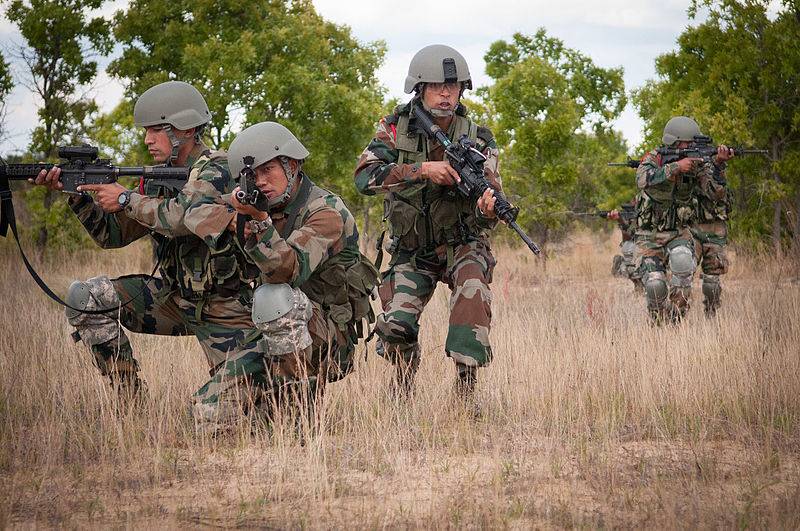The Indian Army is conducting a study on advanced niche and disruptive warfare technologies to strengthen its soldiers’ war-fighting capabilities. The holistic study is expected to prepare the country’s personnel for the non-kinetic and non-combat warfare threats of the future. Headed by a senior Lt-General, the study will include drone swarms, robotics, lasers, loiter munitions, artificial intelligence (AI), big data analysis, and algorithmic warfare, as well as Internet of Things (IoT), virtual reality and augmented reality, according to the Times of India.
Other areas of the study include hypersonic-enabled long range precision firing systems, additive manufacturing, biomaterial infused invisibility cloaks, exoskeleton systems, liquid armour, quantum computing, robotics, directed-energy weapons, and loiter and smart munitions. The Times of India quoted a source as saying: “Technology will also be the key driver in future wars.
“The new study, which is headed by one of the seven army commanders, will recommend the roadmap for inductions with timelines, along with an overall cost-benefit analysis being done for each disruptive technology.” The Indian Army’s future military planning focuses on the integration of soldiers and the disruptive technologies into unified war-fighting machinery.
The move comes amidst border tensions with China in eastern Ladakh. According to the TOI report, China has been working to develop futuristic warfare technologies that include AI-powered lethal autonomous weapon systems. Under the Atmanirbhar Bharat initiative, the Indian Ministry of Defence (MoD) has listed 101 items that would be banned for import beyond the timeline indicated against them. The MoD prepared a list after consultations with its stakeholders, including Army, Air Force, Navy, Defence Research and Development Organisation (DRDO), Defence Public Sector Undertakings (DPSUs), Ordnance Factory Board (OFB) and private industry. The list comprises simple parts and advanced technology weapon systems, including artillery guns, assault rifles, corvettes, sonar systems, transport aircrafts, light combat helicopters (LCHs), radars, and wheeled armoured fighting vehicles (AFVs). The initiative provides an opportunity for the Indian defence industry to design, develop and manufacture the capabilities and technologies indigenously.
Source: www.army-technology.com



